Opinion
Permutations On Edo Governorship Election 2024
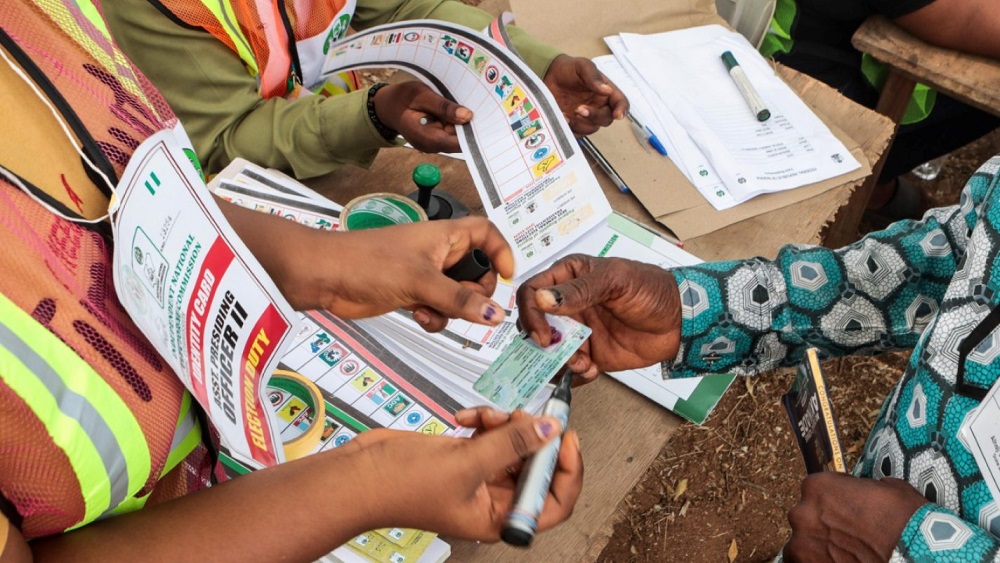
By Professor Echefuna’ R G ONYEBEADI
The die is cast! By September 21, 2024 (roughly twenty four hours from now), Edo people shall vote for who will be the next governor of their State.
The stake seems to be very high. It’s most likely to be a “roforofo” show between the “haves” and the “have nots”. Between wits and brawns; and between “godsons” and the “godfatherless”.
The election is poised to be a straight fight between three categories of people viz (not in a particular order):
1. The Elites
2. The Idealists
3. The Vulnerables (terminology loosely used).
The forthcoming election is for three political parties namely: APC, LP and PDP (in alphabetical order), to win or lose.
PDP represents the Elites group. Labour Party (LP) represents the Idealists group while the APC represents the Vulnerables group in the forthcoming election.
Whereas APC has the “Federal Might” (don’t ask me what that means), APC as a political, a former Governor and a humongous flow of money that is flowing from doubtful sources; PDP has the “power of incumbency” (please, don’t ask me what that means), a sitting governor and some unhindered flow of the State’s money, but without the global support of PDP as a political party.
The LP does not have those skewed “advantages” of both the APC and the PDP, but they have the full backing of the “Obidients” with a divided LP as a political party.
Ordinarily, going by “Nigerian factor” (again, please, don’t ask me what that means) on election matters among others, the election would have been for the APC to lose. But, it may not be so this time by a combination of factors.
PDP may have just had an easy win as the political party in power in the State, but again, that may not be so by a combination of factors.
The LP may have just lost the election outrightly in the fight for power between the trio of APC, PDP and LP, but again, that may not be so due to a combination of factors.
So, who then does the odds favour to win the forthcoming governorship election in Edo State? Wait for it!
By simple logic and by the unwritten principles of zoning and rotation, the governorship election is ordinarily for the Edo Central zone to pick, more so, considering the fact that, in this new political dispensation from 1999 to date, Edo South has produced governors twice spanning 16 years out of 25 years. Edo North has produced a governor for 8 years while Edo Central had produced a governor by default for just about one year, off record.
If the general perception of the incumbent Governor’s ‘poor’ performance connotes reality, then, it will be a very herculean task for the current PDP “controlled” State government to win the forthcoming governorship election in Edo State.
This apart, the latent “Omonoba” factor is a very big abartross that will be very difficult if not impossible for the current PDP led government of the State to overcome.
Going by the unprecedented, multifaceted and highly excruciating pains inflicted on Nigerians by the APC led Federal Government, it may be very difficult to convince the Edo people at this time, that their lots will be better served with a replication of an APC governor in the State.
Besides, the APC governorship candidate cuts across as a person bereft of original ideas, pedestrian and lacks self confidence/self esteem.
So, what would have ordinarily been an edge of having the so-called “Federal Might” and a favoured geopolitical zone, may backfire to cause a fatal political damage to the APC and its candidate.
The APC’s zonal factor sentiments of “tiwa ni tiwa” (our own is our own) and/or “it is our turn” ( awa lo kan) with an inappropriate candidate may really be offensive to the sensibilities and sensitivity of a people who had produced political juggernauts in the past in the persons of Chief Anthony Enahoro, Professor Ambrose Alli and Chief Tony Anenih, just to mention a few.
APC seems to have an inappropriate candidate for a zone that is ordinarily favoured to produce the next governor.
Another fear to contend with is that of an overbearing APC god father which may not synchronize well with the psyche of many Edo people at this time.
Therefore, what may have become a disadvantage to APC’s candidate would have naturally become a clear advantage for the PDP candidate, considering that Edo Central is the favoured zone to produce the next governor. But, it may not turn out to be so.
The PDP candidate is elitist, highly educated, but seems imposed on the people and even supposedly alien to his own people.
The PDP candidate seems to have the right credentials and/or pedigree, coming from a private sector but, his involvement in the current PDP led supposedly “failed” government and close association with a perceived “failed” incumbent Governor of the State is a big abbartross for the PDP candidate.
It may also be difficult for Edo people at this time to accept a political neophyte they hardly knew who is seemingly being put forward by a perceived “non performing” PDP godfather Governor!
It may be instructive at this juncture to note that, the so called rotation/zoning of elective political offices is not by any known law.
There hasn’t been any time that elective positions and particularly, that of governorship elections in Edo State have been exclusively restricted to and/or reserved solely, wholly and entirely for any particular zone without the active participation of the other zones.
Otherwise, an Obaseki wouldn’t have been put forward and became governor for 8 years after an Igbinedion had previously governed for eight (8 ) years, when they are both from the same geopolitical zone of Edo South, without other zones taking their turns prior to.
There has never been any time all the zones didn’t present candidates for elections for governorship in the past.
Therefore, the present sentiments for the Edo Central zone to produce the next governor is neither a right nor any agreement by the stakeholders and citizens of Edo State. It can only be hinged on pleas, persuasions, negotiations, building bridges across the geopolitical divides and on moral ground. The clamour for zoning is not enforceable by any law.
Though the yearnings for zoning the governorship this time to Edo Central is justifiable based on the doctrines of equity, fairness and justice. It is also imperative to note that, one of the maxims of equity states that: he who must come to equity must do so with clean hands!
Then, the pertinent question that needs an answer is: how clean are the hands of Edo Central stakeholders in producing inappropriate candidates that seem to be incurably deficient in the art and science of modern governance and/or unable to effectively communicate, with the added curiosity of being led and spoken for in their own campaigns by controversial people with lots of questionable baggage?
Flowing from the aforementioned therefore, it is my considered opinion that, the cloak of zoning elective positions, good as it may, is not a stand alone prerogative and can not rightly overshadow the overall interest and wellbeing of the citizens of the State.
While plying the route of zoning sentiments, it is only proper that competence, credibility, accountability, transparency and acceptability should not be sacrificed on the altars of incurable defective baggage and zoning.
Now, let’s consider some basic statistics.
According to the data from INEC, a total of 2,210,534 people registered to vote in the Edo Governorship election of Saturday, September 21, 2024.
Out of this number, only 1,726,738 people have collected their permanent voter cards (PVCs) while 483,796 PVCs are yet to be collected.
The breakdown of eligible voters for each of the Edo state’s three geopolitical zones and the 18 Local Government Areas in alphabetical order are as follows:
*Edo Central (LGAs)*:
1. Esan Central – 57,100
2. Esan North East – 80,245
3. Esan South East – 76,842
4. Esan West – 99,983
5. Igueben – 46, 828
*Total = 364,998 or 16.51%*
*Edo North (LGAs)*:
1. Akoko Edo – 119,254
2. Etsako Central – 50,058
3. Etsako East – 81, 639
4. Etsako West – 160,137
5. Owan East – 91,841
6. Owan West – 61, 193
*Total = 564, 122 or 25.52%*
*Edo South (LGAs)*:
1. Egor – 219,832
2. Ikpoba Okha – 315,410
3. Oredo – 313,553
4. Orhinmwon – 118,672
5. Ovia North East – 143,009
6. Ovia South West – 96,409
7. Uhunmwode – 74,529
*Total = 1,281,414 or 57.97%*
From the foregoing, it could be observed that *Edo Central has the least number of Local Government Areas (LGAs) with the least number of eligible voters, which is only 16.51% of the total number of eligible voters in Edo State.*
*Edo North has the second highest number of LGAs and the second highest number of eligible voters, which is 25.52% of the total number of eligible voters in Edo State.*
*Edo South has the highest number of eligible voters which is 57.97% of the total number of eligible voters in Edo State*
It may also be noticed that, Edo South alone where the LP candidate comes from, constitutes more than twice of the total number of eligible voters in both Edo Central and Edo North combined!
Therefore, with all the variables and factors considered, the LP’s candidate for the forthcoming governorship election in Edo State may jolly well cruise to victory by default; more so if Edo South people decide to vote for their own, in addition to the palpable “Omonoba” sentiments as evidenced in recent massive protests in Benin City against the perceived enemies of the Oba of the ancient Benin kingdom.
In that case, the remnant votes of the Edo Central people which may be majorly shared by the two prominent candidates from that zone and that of the Edo North, which may mainly favour the candidate of the former governor from that zone, the overall effect may be such that will eventually tend to be insignificant.
All things considered, if the forthcoming election in Edo State is peaceful, free, fair, transparent and credible, all that the LP’s candidate needs to win the election is to secure a huge majority vote from his Edo South people and then, make some strategic inroads into the other two zones to get the mandatory 25% of the votes cast in 2-3rd of the LGAs of the State.
This simply translates to having the majority of the total votes cast as well as 25% of the votes cast in 12 (twelve) LGAs of Edo State.
How these pans out will be an interesting watch!
In the final analysis, the ultimate decisions on who to vote for and/or against in the forthcoming governorship election in Edo State rests squarely on Edo State people. We wait to see!
Opinion
OF ABUJA INVESTMENT COMPANY, TAMUNO, WIKE, AND TINUBU’S “RENEWED HOPE” AGENDA
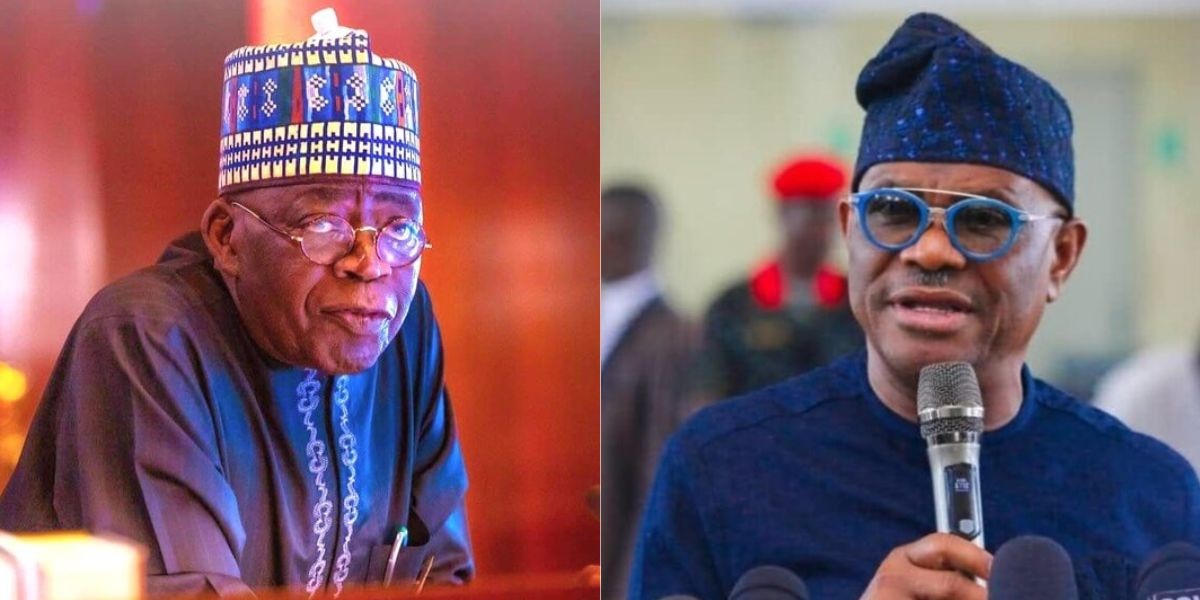
BY BOLAJI AFOLABI
Established in 1994 by the military administration of late General Sani Abacha, the Abuja Investments Company Limited, (AICL) is positioned as a government-owned investment enterprise charged with the responsibility to drive economic development in the federal capital territory. Its primary goal is to promote strategic investment and boost realistic economic growth of the FCT through different platforms and various approaches. Key functions of the AICL include Business Development; Investment and Development; Public-Private Partnership; Facility Management; and Infrastructure Development. The AICL has several subsidiaries and associates including Abuja Property Development Company, (APDC); Abuja Markets Management Limited, (AMML); Abuja Urban Mass Transport Company, (AUMTCO); Abuja Technology Village Free Zone; Abuja Film Village International Limited; PowerNoth/AICL Equipment Leasing Company. Others include Aso Savings and Loans PLC; Abuja Power Company Limited; Abuja Leasing Company; and Abuja Downtown Mall.
From 1994 till the exit of the military from national governance in 1999, the AICL recorded few achievements. During this period, the AUMTCO, and Aso Savings and Loans were established. With the dawn of democratic government in 1999, it was expected that the FCT, being an emerging federal capital will benefit hugely from the activities of the AICL. However, nothing much was achieved between 1999 and 2003. Somehow, Mallam Nasir El-Rufai, who administered the FCT from July 2003 to July 2007, was able to change the tide. Under his watch, the AICL came alive, recorded some measure of visibility and attracted positive public perception. Sadly, the AICL took a downward slide thereafter. None of the past ministers; Aliyu Modibbo Umar, Adamu Aliero, Bala Mohammed, and Muhammed Musa Bello provided the necessary political will and support for the AICL to maximally attain full potential. Indeed, it got worse between 2015 and May 2023 that many residents forgot that the company was still existing.
Many critical stakeholders were worried about the depth of neglect, static state, and institutional damage that the AICL was subjected to. Patterned after similar agencies in some developing nations, where measurable strides are achieved, the reverse happened with the AICL, that it became recurring causes of worries, and regrets to many people. Alhaji Aminu Mohammed, a former staff member of FCTA said, “it was shameful that the company remained largely dormant for many years.” Corroborating, Mr. Gilbert Gyang, an Abuja based investment expert declared, “the AICL, especially during the last administration was arguably comatose. It merely existed on paper, there was no visible investment initiative geared towards economic growth in the federal capital.” For Ms. Winifred Anosike, former banker, and development consultant, “it’s painful that the company was practically inactive for years. It was not only affecting economic growth in Abuja but impacted negatively on people and firms with result-driven initiatives who desired to contribute actively to the development of the capital city.”
With the emergence and subsequent inauguration of President Bola Tinubu on May 29, 2023, key players in the investment sector were hopeful that, the AICL may breathe again. Many hinged their thoughts on Tinubu’s background and experiences in accounting, financing, investment, governance, and leadership. Though with caveats; the choice of who minister’s FCT will be pivotal. Convinced that the AICL should be the “engine room” of economic growth and development of the capital city, many hoped that Tinubu will deploy the appropriate person to oversee the strategic ministry. Some stakeholders concluded that a wrong choice may consign the AICL into the “wilderness of inactivity” and likely extinction. Somehow, key players in the investment sector, at different fora and platforms were upbeat that Tinubu will pick the right person, who they hope will lead the way towards enabling the AICL to get back its mojo.
In August 2023, the deployment of Barrister Nyesom Ezenwo Wike as the Minister of the FCT; the 8th since Nigeria’s return to democratic government elicited public endorsement. Tinubu’s choice was largely celebrated by many stakeholders, as it renewed optimism about the prospects of AICL reviving its activities. Cognisant of Wike’s legendary achievements, as Rivers state Governor where he embarked on massive infrastructure development and more, turning the “Treasure Base” to the central investment hub in the South South zone, and emerging as second to Lagos state, many were confident that “light will come” to the AICL. A similar spate of enthusiasm and expectations was prevalent in and around the AICL. Many of the staff members also shared the positions.
The atmosphere at the Garki District offices of AICL on April 7, 2024 was ecstatic when news filtered in that Wike had appointed Dr. Maureen Tamuno as the Group Managing Director. A few hours later, it turned to frenzy after goggle checks were done by some staff members to have glimpses of her profile. Impressed, and satisfied with her multi-disciplinary academic background, and multi-faceted careers, her appointment was described as well-thought, and well-deserving. The unanimity of opinion was that, being a round peg in a round hole, the AICL will leverage on her far-reaching experiences and exposures as a former lawmaker, seasoned diplomat, public administrator, and boardroom strategist.
Aware and ready for the challenges ahead, many staff members were visibly excited when Tamuno assumed office the following day. Thus emerging as the first female chief executive of the AICL, since its 30 years of existence. Described as an accomplished technocrat with identifiable achievements in leadership, strategy, diplomacy, administration, and consulting, Tamuno, in her maiden speech confirmed the postulations of staff members. She emphasized her, “commitment to open-door policy to all staff, urging everyone to operate at the highest standard of transparency, confidentiality, accountability, and ethical business practices.” Continuing, she assured staff members that her, “strategic approach and consumer-centric philosophy are expected to propel the AICL to new heights of success.”
From reports, challenged by the enormity of the task ahead, conscious of the hugely untapped potential of the AICL, buoyed by the political support of Wike, and encouraged by the passion of the staff members, Tamuno literally hit the ground running. As a globally-recognized business development, management, and investment professional, she approached her assignment with iron-cast resolve, and the precision of a surgeon. First off, she embarked on critical reviews and overview of the AICL trajectory from inception; identified germane issues; evolved strategies for re-positioning the company; enunciated quick-wins, short-term, medium-term, and long-term measures for development, and some others. All these were geared towards delivering (or surpassing) the Ministerial mandate, and also ensuring that the AICL contributes its quota to Tinubu’s “Renewed Hope” agenda.
Indeed, it is imperative to note that the AICL, under the superintendent of Tamuno has literally drawn water out of rocks; which before now was largely unthinkable. That the soft-spoken and resourceful amazon; and her team were able to make noticeable impact within just one year, speaks volumes about her ingenuity, and indomitable spirit. In a broad sense, these achievements include encouraging economic diversification; expanding investment opportunities; exploring business and investment exchanges; deepening subsidiaries collaboration; and fostering diplomatic relationships.
In practical terms, the AICL, through some landmark initiatives has provided the platform for the promotion of trade and commerce, as well as economic growth and sustainable investment in the FCT. It is imperative to recall some of these laudable and trail-blazing projects. A few days back, the solar powered Farmers Market in Utako District and Kugbo International Market were commissioned by the FCT Minister of State, Dr. Mariya Mahmud. Speaking at the epoch making events, Mahmud eulogized Tamuno for completing the first-of-its-kind projects which, “would provide employment opportunities for a wide range of people in line with the “Renewed Hope” agenda.” While explaining that the projects are under the Public Private Partnership initiative of the AICL, Tamuno promised that, “under the Build Operate and Transfer (BOT) arrangement, the government will combine with the private sector to create profitable and sustainable public infrastructure. We identified Small and Medium Enterprises, (SMEs) as the backbone of any prosperous economy, because they create jobs that drive sustainable economic growth.” To underscore AICL’s commitment towards encouraging the informal sector, shops were gifted to some hardworking traders from all the six Area Councils of the FCT.
In October 2024, the AICL organized a two-day Abuja Business and Investment Summit with the theme: “Optimizing Investments Through Partnership.” The event, geared towards promoting investment opportunities in the FCT, was attended by major stakeholders in finance, investment, manufacturing, and other sectors. Participants opened new alliances, partnerships, and collaborations for new opportunities and innovations that will lead to micro and macro development. Tamuno, who by the way was one-time Nigeria’s Ambassador to Jamaica is leveraging on her diplomatic credentials and network to re-position the AICL. She is regularly engaging, and exploring investment opportunities with foreign countries through their diplomats in Nigeria. Through her participation at the maiden Nigeria-Kazakhstan Business Conference which was held in Abuja, in 2024, there are advanced plans for the establishment of city-to-city flights between both countries, as well as collaborations in agriculture, education, technology, logistics, and more.
Agreed, the journey is somewhat far but the AICL, under the new chief executive has shown unbridled commitment, and unflinching fervor in elevating the status, and relevance of the company towards engendering meaningful growth and development of the FCT. Tamuno has shown relentless drive and boundless energies towards justifying the confidence reposed in her by Wike. Posting an encouraging report-card in one year deserves commendations and encouragement. Mr. Olugbenga Okanlawon, an Abuja based public affairs analyst declared that, “she has shown that she is the right person for the job. Considering what the AICL has achieved in one year, it is clear that more grounds will be covered in terms of growth and development.” A frequent caller to the AICL who preferred anonymity said, “the GMD has brought a new lease of life to the place, and everybody has imbibed her can-do-it spirit with much pride, and belief.”
* BOLAJI AFOLABI, a Development Communications specialist was with the Office of Public Affairs, The Presidency, Abuja.
Opinion
Dismantling the false Narrative of a “Coup” in Rivers State
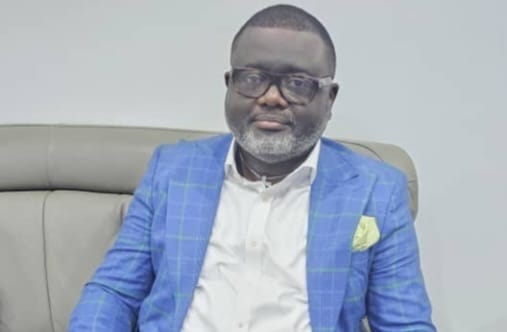
By Jones Onyereri
The assertions that President Tinubu’s intervention in Rivers State constitutes an unconstitutional power grab or a “military coup in civilian disguise” fundamentally misrepresent the legal, political, and security realities that necessitated federal action. Far from being a partisan maneuver, the declaration of a state of emergency and subsequent measures were lawful, proportionate, and grounded in the imperative to prevent a total collapse of governance and public order. Below is a thorough rebuttal to the allegations:
The Nigerian Constitution explicitly empowers the President to declare a state of emergency under Section 305 when there is a clear threat to public safety or a breakdown of governance. The escalation of pipeline vandalism by militants—which crippled economic activity, endangered lives, and exacerbated environmental degradation—coupled with the Supreme Court’s February 18 judgment highlighting governance failures in Rivers State, provided incontrovertible justification for federal intervention. The claim that “no emergency existed” ignores the state government’s demonstrable inaction in addressing these threats, which risked spiraling into wider violence. Emergency powers are, by design, temporary and exceptional, aimed at restoring stability, not undermining democracy.
The appointment of Admiral Ibok-Ete Ibas as Sole Administrator aligns with constitutional provisions for federal intervention during crises. Section 11 of the Constitution permits the National Assembly to legislate for a state in extraordinary circumstances, and the President’s action enjoys implicit legislative backing as a stopgap to avert anarchy. Admiral Ibas, a retired military officer with no overt political ties, was selected for his administrative expertise, not as a proxy for any faction. His mandate is strictly limited to stabilizing the state, facilitating the return to democratic governance, and ensuring the security forces can operate without partisan interference. To equate this with a “military coup” is hyperbolic and disregards the transparent, legal framework guiding his role.
Critics allege defiance of Supreme Court orders regarding state funds, but this misinterprets the interplay between judicial mandates and emergency executive authority. While the Court initially restricted financial flows to Rivers State due to governance disputes, the escalation of the crisis necessitated federal release of funds under the “doctrine of necessity” to sustain critical services like healthcare, education, and infrastructure. The Constitution prioritizes the security and welfare of citizens (Section 14(2)(b)), and the President’s duty to uphold this principle supersedes rigid adherence to procedural norms during emergencies.
The Sole Administrator’s actions, including the formulation of regulations and restructuring of local government administrations, operate within the bounds of his provisional mandate. These regulations require approval by the Federal Executive Council (FEC), ensuring oversight and accountability. The replacement of local government officials was not a “power grab” but a necessary step to dismantle networks complicit in revenue diversion or inefficiency. The Supreme Court’s insistence on democratically elected local governments remains sacrosanct, but interim appointments during emergencies are globally recognized mechanisms to restore functionality before elections can be organized.
Claims that the Administrator has overstepped by preparing a budget or appointing a Secretary to the State Government (SSG) ignore the practical realities of governance. In the absence of a functional State Assembly, provisional budgets based on existing frameworks ensure continuity of public services. Similarly, the appointment of an SSG—a routine administrative role—falls within the Administrator’s authority to maintain bureaucratic operations. These measures are neither permanent nor unconstitutional; they are transitional tools to prevent total institutional paralysis.
The narrative that this intervention serves Minister Wike’s political interests is speculative and distracts from its stated purpose. Restructuring boards and commissions, including the Rivers State Electoral Commission, aims to depoliticize institutions vital to free and fair elections. The focus on “Wike loyalists” assumes nefarious intent without evidence, whereas the Administrator’s appointments could equally reflect efforts to engage experienced personnel familiar with the state’s administrative landscape. The assertion that federal actions target Governor Fubara’s allies conflates routine accountability with persecution; in crises, restructuring is inevitable to eliminate inefficiency or bias.
Regarding the House of Assembly reconstruction, federal involvement ensures the project adheres to timelines and standards, avoiding further delays that could destabilize legislative functions. The Governor’s progress, while commendable, does not negate the need for independent oversight in a volatile environment.
President Tinubu’s intervention is neither indefinite nor authoritarian. Emergency measures will lapse once security is restored, and democratic structures are reinstated. The National Assembly retains the authority to review and curtail these actions under Section 11, ensuring checks and balances. To frame this as a “2027 political takeover” is a cynical distortion of a lawful, necessary intervention to prevent Rivers State from descending into chaos.
In conclusion, the allegations of a “civilian coup” or unconstitutional power grab disregard the constitutional safeguards and urgent pragmatic considerations guiding federal actions. The President’s duty to protect lives and livelihoods in Rivers State transcends political expediency. While vigilance against overreach is prudent, dismissing all stabilization efforts as partisan machinations undermines the legitimate pursuit of peace and order. The people of Rivers State deserve functional governance, not perpetual crisis—and federal intervention, however imperfect, is a constitutional means to that end.
Rt Hon Sir Jones Onyereri PhD, KSP, FCIPAN
April 12, 2025
Opinion
Tik Tok gets another lifeline from being banned

By Sonny Aragba-Akpore
On Saturday April 5,United States President Donald Trump announced an extension of 75 days for Tik Tok on his Truth Social platform, saying the TikTok deal “requires more work to ensure all necessary approvals are signed.”
He said he is signing an executive order “to keep TikTok up and running for an additional 75 days.”
With this development, the 170 million subscribers connected to Tik Tok in the United States of America (USA) have another 75 days to meander on the App unhindered.
This new deadline which an Executive Order covers follows the expiration of the first 75 days Order on April 5.
Tik Tok owners,ByteDance of China, have these 75 days to divest completely from the American operations or risk being sent to the dark or being banned.
China faces a 54% aggregate tariff on goods imported into the US, and has retaliated with 34% in counter tariffs.
Reports suggest several potential buyers for TikTok have cropped up in recent days.
Amazon has put in a last-minute offer to the White House to acquire the platform, according to Agency reports though the firm has declined comment.
Several other potential buyers include billionaire Frank McCourt, together with Canadian businessman Kevin O’Leary. Alexis Ohanian, who co-founded Reddit, has said he has joined Mr McCourt’s bid.
Computing giant Microsoft, private equity giant Blackstone, venture capital firm Andreessen Horowitz and search engine Perplexity AI are also reportedly in the running for a stake.
Trump has said his administration was in touch with four separate groups interested in a potential TikTok deal, though he has not named them.
Vice-President JD Vance is spearheading the administration’s effort to find a buyer.
The president has also suggested the US could offer a deal where China agrees to approve a TikTok sale in exchange for relief from US tariffs on Chinese imports.
“We hope to continue working in Good Faith with China, who I understand are not very happy about our Reciprocal Tariffs,” Trump wrote on Truth Social.
He added that the trade levies are “the most powerful economic tool, and very important to our national security”.
Trump granted TikTok a second 75-day extension to comply with a law that requires the hugely popular video app to either sell its US operation or face a ban in the country.
“We do not want TikTok to ‘go dark’,” Trump wrote on Truth Social. “We look forward to working with TikTok and China to close the Deal.” The platform is currently owned by Chinese company ByteDance.
Trump’s first extension was granted after he took office in January and this expired on Saturday,April 5,2025.
In a statement on Friday, April 4,ByteDance said it had been in discussion with the Trump administration, but “an agreement has not been executed”.
“There are key matters to be resolved. Any agreement will be subject to approval under Chinese law,” a spokesperson said.
Former US President Joe Biden’s administration had argued that TikTok could be used by China as a tool for spying and political manipulation.
Congress passed a bipartisan law last year that gave ByteDance six months to sell its controlling stake in TikTok or see the app blocked in the US.
Opponents of a ban have cited freedom of speech as a reason for keeping the platform open.
But the new extension comes as the Trump administration tries to broker a deal to bring the social media platform under American ownership, and keep the popular app running in the US.
“The Deal requires more work to ensure all necessary approvals are signed,” Trump wrote on his Truth Social platform on Friday.
The social media platform, which says it has more than 170 million users in the US, must close in the US under a law passed by Congress – unless a buyer is found.
Agency reports that a TikTok deal was nearly finalised on Wednesday last week but fell apart after Trump on the same day announced sweeping global tariffs, including on China.
Agency reports further explained that ByteDance representatives contacted the White House to inform them China would no longer approve the deal unless negotiations on the tariffs could take place .
Unnamed sources said the plan had been for Trump to sign an order initiating a 120-day period for closing the deal, allowing time to finish paperwork and secure financing.
The agreement had won approval from existing investors, new investors, ByteDance, and the US government, but China backed out once Trump imposed the global import taxes.
The Chinese embassy in Washington DC said in a statement that it “opposed practices that violate the basic principles of the market economy”.
A federal law signed by former President Joe Biden in 2024 effectively banned TikTok if it remained under Chinese ownership. The initial law called for the app to permanently go offline on Jan. 20, but Trump signed an executive order extending the deadline by 75 days.
The US TikTok ban, which received overwhelming bipartisan support, required TikTok’s parent, ByteDance, to divest the short-form video app over US concerns that it posed a national security threat.
US officials have long argued that the Chinese government, which is designated as a US adversary, could gain access to Americans’ TikTok user data for nefarious purposes or use the platform to spread propaganda.
The US law banning TikTok forces web service providers to stop hosting the app and requires Apple and Google to pull it from their app stores.
TikTok took a challenge to the law all the way to the US Supreme Court, arguing that it infringed on the company’s First Amendment and other constitutional rights. A group of TikTok users made similar claims in a companion case, claiming they, too, had been deprived of constitutional protections.
But the high court ruled in favor of the government, reasoning that TikTok, as a foreign entity, wasn’t entitled to constitutional protections and that national security concerns outweighed the government’s restriction on TikTok use. The court also said the law was limited in its infringement on free speech because social media users could access and post on other social media platforms.
The Act to ban Tik Tok if it did not divest its operations in the USA was signed with broad support from Republicans and Democrats.
Although some lawmakers had urged President Joe Biden to grant a reprieve to prevent TikTok from going dark in the U.S. as soon as Jan. 19,2025 ,the TikTok ban had already resulted in a number of “TikTok refugees” who moved to another Chinese app, RedNote, short for “Little Red Book.” RedNote became the most downloaded app in Apple’s app store in the U.S. the week leading up to the Supreme Court’s decision. If this trend continues, this “migration” to a similarly situated app might defeat the purpose of the Act. The TikTok ban illustrates how U.S. regulatory actions are designed to mitigate potential threats posed by foreign adversaries, significantly increasing compliance requirements for cross-border investments and technology operations. Particularly, the Supreme Court’s decision upholding the TikTok ban underlines the trend of intensifying scrutiny of foreign-controlled entities that collect or handle sensitive data in the U.S.
Although it’s not clear whether there will be a reprieve for Tik Tok,there are strong indications that the Trump administration needs more time to understand the situation and perhaps to be the one to implement the ban.
TikTok has 1,925 billion users globally, with 170 million monthly active users in the United States.
The average daily time spent on TikTok has more than doubled from 27 minutes in 2019 to 58 minutes in 2024.
The most popular categories on TikTok are Entertainment, Dance, and Pranks, with billions of views each.
Top influencers on TikTok include Charli D’Amelio, Khabane Lame, and Addison Rae, each with tens of millions of followers.
TikTok’s user base has grown exponentially from 133 million in 2018 to over 1,925 billion in 2024.
Daily active users on TikTok have skyrocketed into the millions, reflecting the platform’s ability to engage users on a daily basis.
In the year 2020, Trump issued an executive order citing TikTok’s ability to capture vast amounts of user data as a significant national security threat. The order sought to prohibit certain transactions involving ByteDance but was blocked by federal courts.
Subsequently, the Trump Administration directed ByteDance to divest its U.S. TikTok operations and user data, but these efforts were stalled as negotiations with the president Joe Biden Administration aimed at a nondivestiture agreement failed to resolve the government’s concerns.
ByteDance’s proposed national security agreement was ultimately deemed insufficient to mitigate risks posed by Chinese control. Against this backdrop, Congress enacted the sale-or-ban law, further targeting TikTok and similar applications.
> According to the Supreme Court’s finding, TikTok’s ultimate parent company, ByteDance, is a privately held company that has operations in China. ByteDance owns TikTok’s proprietary algorithm, which is developed and maintained in China. The company is subject to Chinese laws that require it to assist or cooperate with the Chinese government’s intelligence work and to ensure that the Chinese government has the power to access and control private data that the company holds.
Underscored in the decision, TikTok’s extensive data collection from more than 170 million U.S. users could be exploited for surveillance, public influence campaigns or other harmful purposes that threaten national security. The Act and the holding reflect Congress’ and the Supreme Court’s efforts to address growing concerns over foreign adversary-controlled applications through the access to sensitive data of U.S. nationals and the resulting potential risks to U.S. national security.
-

 News23 hours ago
News23 hours agoTinubu’s ugly past shores up as US Judge orders DEA, FBI to release files
-

 News12 hours ago
News12 hours agoAutonomy: 774 LGs challenge FG, states in court Tuesday
-

 Sports22 hours ago
Sports22 hours agoJust in: Newcastle pummel Man United 4-1
-

 News5 hours ago
News5 hours agoRivers women rally in support of state of emergency
-

 News22 hours ago
News22 hours ago2027: Atiku’s Opposition Front is a mission impossible-Wike declares
-
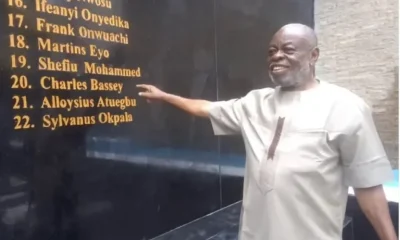
 News23 hours ago
News23 hours agoSAD! Another Christian Chukwu’s team mate, Charles Bassey is dead
-
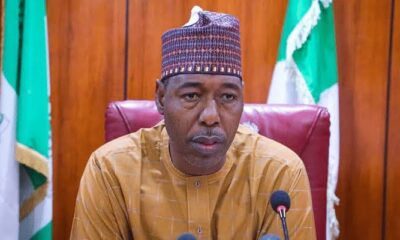
 News11 hours ago
News11 hours agoZulum orders arrest, offers house, scholarship to abused boy in viral video
-
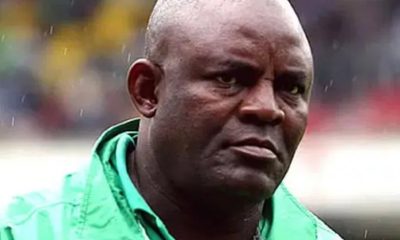
 News23 hours ago
News23 hours agoChristian Chukwu’s Death A Monumental Tragedy— Hon Nnaji






